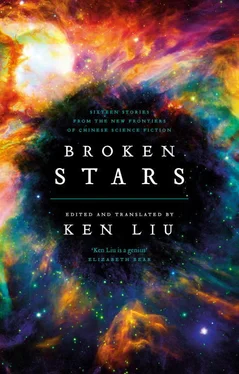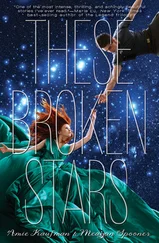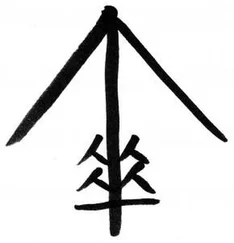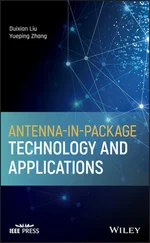Once, when speaking to a group of prominent Western authors and scholars who had never heard of Chinese sci-fi, I used the metaphor of a “hidden army.” Forgotten by everyone in the cultural landscape, they lay concealed in silence, alone on the desolate heath. Perhaps someday an opportunity would arise when they would burst into action and change the world, but it was also possible that such an opportunity would never come, and they would fade into oblivion. Future explorers might find the remains of their mysterious, unfinished war engines, but those who had constructed the weapons and practiced with them would be forever forgotten.
However, soon after, the third volume of Liu Cixin’s magnum opus, Death’s End , was published. An unanticipated sea change came over China’s literary scene. The isolation that had kept sci-fi out of view had also acted as a dam storing up the potential for an explosive release. As young Chinese fans grew up and entered society, they persisted in their love of genre literature. Like faithful fans at a concert, they waved their faint glow sticks to support their beloved art. As night fell, thousands of tiny lights danced with more urgency and force, and thousands of lonely voices coalesced into a powerful rhythmic chant. Finally, Liu Cixin, the star of the show, came onto the stage to perform his masterpiece, and the crescendo of wild cheers that greeted him seemed to shake the stars suspended in the sky above.
Society at large was consumed with curiosity. Literary critics, numbed by the clichéd portraits of urban life and listless middle-class affairs that filled “literary fiction,” were surprised to find that fiction written in Chinese was capable of narrating grand space epics and painting magnificent portraits of an imagined future. A fresh literary terrain materialized out of nowhere, waiting to be cultivated by page-plowing scholars and critics.
All of a sudden, literary theory became a hot topic again, and the number of dissertations and papers focused on sci-fi exploded. Established scholars gave lectures on the “meaning of sci-fi,” and even avant-garde artists enthusiastically invited sci-fi writers to collaborate with them to explore the revolutionary ideas made possible by science and the infinite potential of humanity. Agents and producers always on the lookout for the next piece of valuable IP buttonholed every sci-fi writer, demanding to know, “Do you have any stories suitable for screen adaptation?”
Within but a few years, sci-fi authors had turned from invisible and forgotten bookworms to superstars in hot demand. They took off their simple, outdated plaid shirts and became sharp dressers—no, really, some of them could even be glimpsed in the pages of fashion magazines. Everyone acted as if each sci-fi author was a walking mine of brilliant ideas.
The symbols and memes of sci-fi also injected themselves into the popular imagination. Internet CEOs interpreted the “dark forest” of the “Three-Body” series as a metaphor for the ruthless competition in their domain, while a government spokesperson employed the “dark forest” to describe the worst-case scenario for the crisis on the Korean Peninsula. Sci-fi had never touched so many in China. The vice president of China affirmed that sci-fi was a “positive force” for the development and progress of the country, and even declared himself a fan. Everyone agreed that this was the most encouraging, most supportive environment sci-fi had ever experienced in China.
Still, mere novelty wears out quickly, and it’s impossible to predict whether the hidden army, once revealed, can really become a force to be reckoned with and sustain the wave of cultural enthusiasm for sci-fi. Readers expecting more of The Three-Body Problem , or even The Four-Body Problem and The Five-Body Problem , would no doubt be disappointed. No one could (or should) replicate Liu Cixin. Today, although he hasn’t published a new novel since Death’s End , “Da Liu” remains peerless in China (some have estimated that yearly sales of his books exceed the sum of the yearly sales of all other science fiction books combined). After Chinese authors managed to bring home Hugo rockets two years in a row, what else can they do to keep the attention of mainstream society? If the ambitious sci-fi films currently in production don’t achieve commercial success—remember, Chinese audiences have been trained to have very picky tastes by a steady diet of big-budget Hollywood sci-fi blockbusters—how much longer will the financiers remain excited?
I imagine the answers to many of these questions will reveal themselves shortly. Most of the sci-fi authors I know are not concerned about them because they have day jobs—engineer, reporter, university instructor, science researcher, judge, entrepreneur, and so on. Even if the current wave of enthusiasm burns out and sci-fi once again retreats from the view of most people—I’m reminded of little Pluto, which was unknown until 1930, and which then enjoyed a brief few decades of attention before scientists mercilessly ejected it from the ranks of the planets—sci-fi authors will simply shrug and return to their hidden base, away from the bright and fickle beam of public attention, and continue to let their imaginations roam.
As for myself, I’m glad that I got to witness this wave of interest and so many fantastic happenings. Let me tell you a bit more about that arthouse director I mentioned at the beginning. At the time of his speech, I asked him why it was that Chinese films rarely showed the future. He answered perfunctorily that “exploration of history and the present already encompasses within it anticipation for the future.” At that moment, he probably wouldn’t have believed that in a few years he would make a film about the year 2025. When that film was released, some in the media praised the director for “opening a new path for expressing realism through the experimental techniques of science fiction.” I knew then that my long-held dream had been fulfilled: when I talk about sci-fi with others, none of us need feel embarrassed anymore.

KEN LIU is the winner of the Nebula, Hugo, Locus, World Fantasy, Sidewise, and Science Fiction & Fantasy Translation Awards. He is the author of The Grace of Kings and The Wall of Storms , in his epic series The Dandelion Dynasty. He is also the translator of Liu Cixin’s Hugo-winning and Nebula-nominated The Three-Body Problem and the trilogy’s Locus-winning conclusion, Death’s End .
Find me on Twitter
Find me on Facebook
Visit my website
The Dandelion Dynasty Series

Find out more

Find out more

Visit Head of Zeus now

Find out more

Find out more

Visit Head of Zeus now
An Invitation from the Publisher
Читать дальше


















